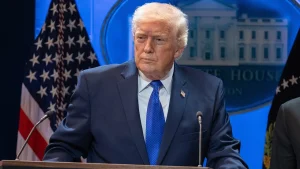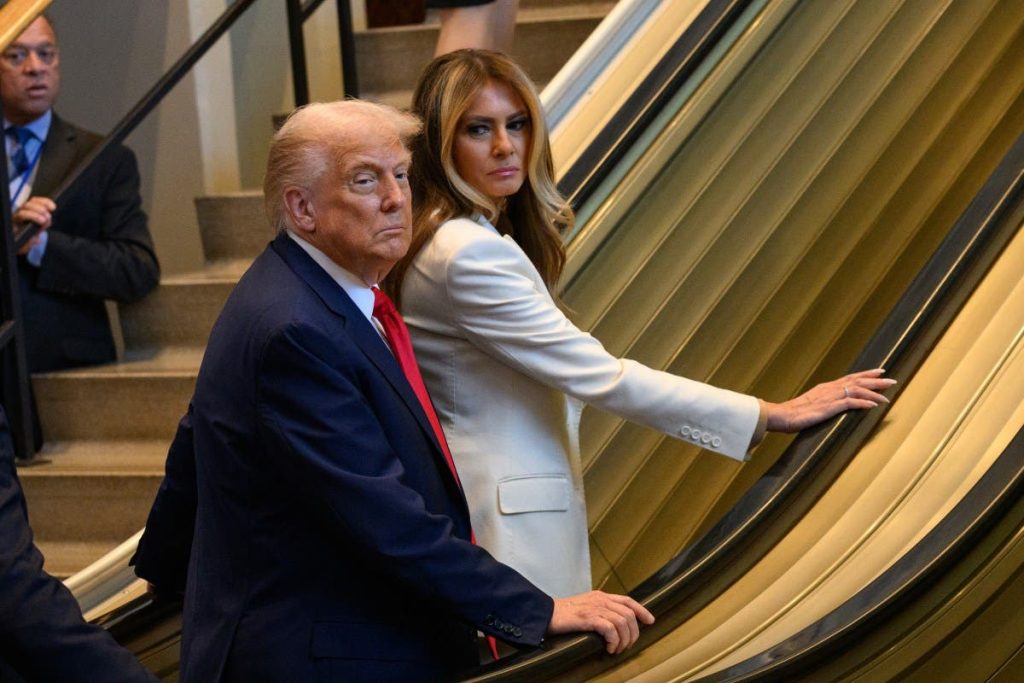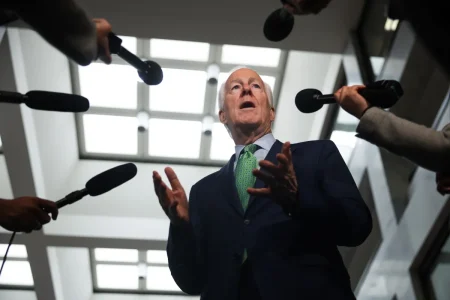Governor Newsom and Trump’s Escalator Incident: When Political Moments Go Viral
In a moment that perfectly captures the current state of American political discourse, California Governor Gavin Newsom couldn’t resist taking a jab at former President Donald Trump following an escalator mishap at the United Nations General Assembly. When Trump and former First Lady Melania Trump stepped onto an escalator, it abruptly stopped—creating exactly the kind of viral moment that defines modern political theater. Newsom’s response on social media was swift and pointed: “I only walk up escalators because that’s what REAL MANLY MEN do.” This exchange wasn’t just about an escalator malfunction; it represented something much more significant about how political rivalries now play out in the digital age, where even the most mundane incidents become ammunition in the ongoing battle for public perception.
The incident itself might seem trivial—an escalator stops, a teleprompter malfunctions—but the aftermath reveals how deeply entrenched political polarization has become in American society. While Trump attempted to make light of the situation during his UN speech, saying, “These are the two things I got from the United Nations—a bad escalator and a bad teleprompter,” the moment quickly spiraled into something more contentious. Fox News host Jesse Watters suggested the technical difficulties might have been “an insurrection,” even going so far as to say the United States should either leave the United Nations or “bomb it”—comments that, while possibly intended as hyperbole, demonstrate how even minor incidents can trigger extreme rhetoric. Meanwhile, U.N. General Assembly President Annalena Baerbock pointedly noted after Trump’s remarks that “The U.N. teleprompters are working perfectly,” adding another layer to the already tense situation.
The technical explanation for the escalator stopping was rather mundane—according to Reuters, the United Nations indicated that a member of Trump’s video crew, specifically his videographer, likely triggered a built-in safety mechanism by moving backward up the escalator while filming. This safety feature is designed to prevent people or objects from getting caught in the machinery. However, the White House press secretary Karoline Leavitt’s response suggested something potentially more sinister: “If someone at the UN intentionally stopped the escalator as the President and First Lady were stepping on, they need to be fired and investigated immediately.” This transformation of a probable technical malfunction into a potential deliberate act perfectly illustrates how even the most innocent incidents can be reframed within existing political narratives of persecution or sabotage.
For his part, Trump addressed the incident on Truth Social, describing his speech as “very well received” while acknowledging the technical difficulties: “The teleprompter was broken and the escalator came to a sudden hault [sic] as we were ridding [sic] up to the podium, but both of those events probably made the speech more interesting than it would have been otherwise.” His response demonstrates a savvy understanding of how these moments can actually work in a politician’s favor, turning potential embarrassments into opportunities to appear more relatable or resilient. This approach reflects a growing recognition among political figures that in the social media era, unscripted moments often generate more engagement than carefully planned speeches, and the ability to pivot and adapt to unexpected circumstances can become a political asset in itself.
The exchange between Newsom and Trump is particularly noteworthy given both men’s political trajectories. Newsom, widely viewed as a potential Democratic presidential contender for 2028, has increasingly positioned himself as a foil to Trump and Trump-style politics. Their previous public disagreements over issues like the Los Angeles County wildfires and Republican redistricting efforts suggest an ongoing rivalry that transcends this single incident. For Newsom, these moments provide opportunities to establish himself on the national stage, demonstrate his quick wit, and energize Democratic supporters who respond positively to direct challenges against Trump. For Trump, such exchanges reinforce his image as someone constantly under attack by political opponents, strengthening his connection with a base that sees him as fighting against established powers.
As American politics continues to evolve in the digital age, these kinds of viral moments and the responses they generate may become increasingly influential in shaping public perception of political leaders. The escalator incident, while minor in isolation, serves as a microcosm for larger trends: the blurring of substantive policy discussions with personality-driven conflicts, the transformation of accidental moments into political theater, and the growing importance of digital platforms as battlegrounds for political narratives. Whether this shift toward viral politics represents a temporary phase or a fundamental transformation in American democratic discourse remains to be seen, but one thing is clear—in an era where attention is the most valuable currency, even an escalator can become a potent political symbol when the right people are standing on it.














